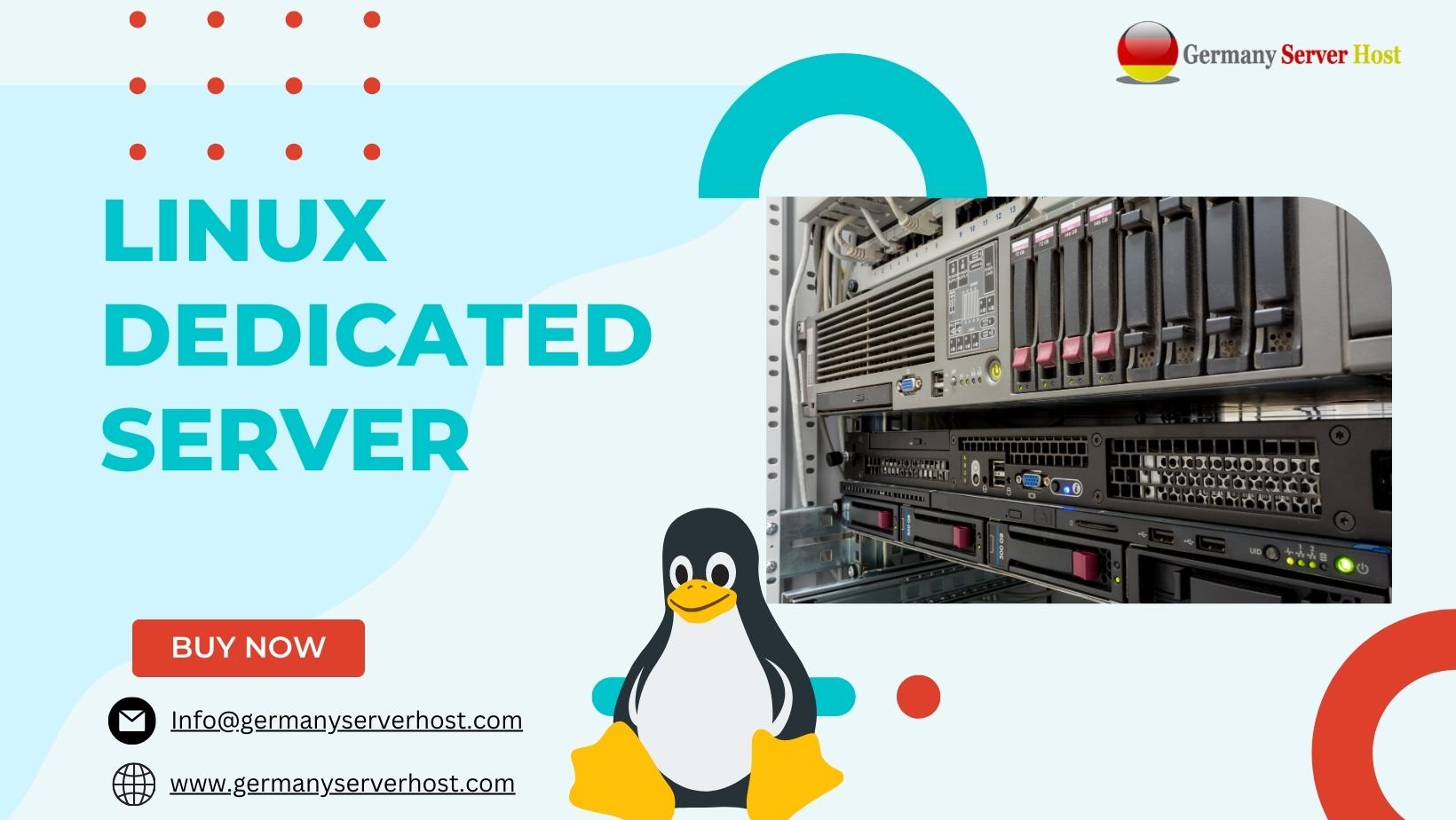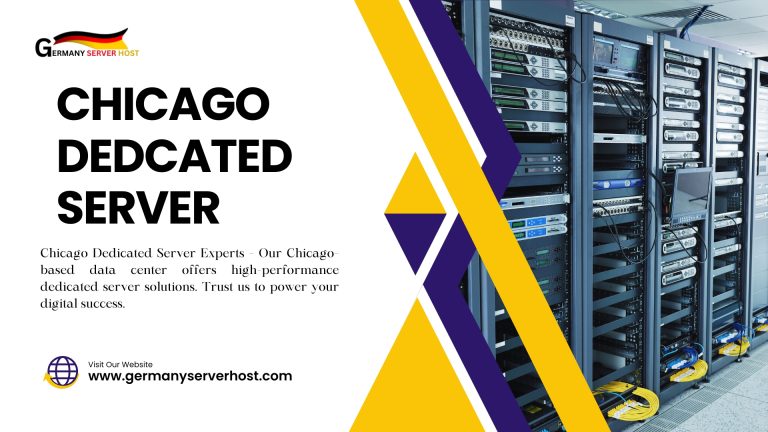In today’s fast-paced digital landscape, having a robust and reliable server infrastructure is crucial for businesses and individuals alike. One such solution that has gained immense popularity is the best dedicated server. This article aims to shed light on what a Linux Dedicated Server is, its benefits, how it compares to other server options, and why it’s the preferred choice for many.
Introduction
In the digital age, having a stable online presence is vital for businesses to succeed. This is where the role of a best dedicated server comes into play. By offering unparalleled control, security, and customization options, it empowers users to harness the full potential of their online ventures.
What is a Linux Dedicated Server?
A best dedicated server is a powerful computing machine solely dedicated to hosting websites, applications, or services. Unlike shared hosting, where multiple users share resources on a single server, dedicated servers provide an entire server to a single user, ensuring optimal performance and reliability.
Benefits of Using a Dedicated Server
When it comes to hosting, dedicated servers offer an array of benefits. These include enhanced performance, complete server customization, robust security measures, and the ability to handle high traffic loads. Moreover, users can install and configure software tailored to their specific needs, providing unmatched flexibility.
Comparison with Other Server Options
Compared to shared hosting or virtual private servers (VPS), a best dedicated server offers distinct advantages. While shared hosting is cost-effective but limited in resources. VPS offers more control but still shares server resources. A dedicated server excels in both performance and control, making it ideal for resource-intensive applications.
Key Features and Customization
Buy dedicated server come equipped with a wide range of features, including a choice of operating systems, control panels, and hardware specifications. This allows users to create an environment that suits their unique requirements, ensuring optimal performance for their projects.
Performance and Scalability
The performance of a dedicated server is unmatched due to the absence of resource-sharing. This translates to faster loading times, seamless user experiences, and the ability to handle traffic spikes efficiently. Additionally, the server’s scalability ensures that it can grow alongside your needs.
Security Measures
Security is a top priority in the digital landscape, and dedicated server provide advanced security measures. With dedicated firewalls, encryption options, and regular security updates, users can rest assured that their data and applications are well-protected.
Management and Control
Having full control over server configurations is a game-changer. Users can optimize server settings, install necessary software. Even customize security protocols to align with their unique requirements. This level of control is unmatched by other hosting options.
Cost-Effectiveness
While dedicated servers are priced higher than shared hosting or VPS, they offer unparalleled value for resource-intensive applications. The benefits of enhanced performance, control, and security outweigh the costs. Making dedicated servers a cost-effective solution in the long run.
Choosing the Right Dedicated Server Provider
Selecting the right hosting provider is crucial. Factors to consider include the provider’s reputation, customer support, uptime guarantees, and server management options. Researching and comparing different providers will help you find the best fit for your needs.
Setting Up Your Dedicated Server
Setting up a dedicated server involves choosing an operating system, configuring server settings, and installing essential software. Many hosting providers offer user-friendly control panels that simplify the setup process, allowing users to launch their servers quickly.
Best Practices for Server Maintenance
Regular server maintenance is essential to ensure optimal performance and security. Tasks such as updating software, monitoring server health. And performing backups should be part of a routine maintenance plan to prevent potential issues.
Use Cases of Dedicated Servers
Best dedicated server find applications in various domains, including e-commerce, gaming, media streaming, and enterprise-level software hosting. Their versatility and robustness make them suitable for projects of all sizes and complexities.
Future Trends in Server Technology
As technology continues to evolve, so does the field of server hosting. Trends such as edge computing, containerization, and enhanced AI-driven management are shaping the future of dedicated server technology, promising even greater performance and efficiency.
Conclusion
Germany Server Host Provide best performance, control, and security are paramount, a Linux Dedicated Server stands out as the optimal hosting solution. With its unmatched benefits and the ability to cater to a wide range of projects, it empowers individuals and businesses to thrive online.
FAQs
Q1: Can I switch my existing hosting to a Linux dedicated server?
Yes, you can switch your existing hosting to a dedicated server. This transition involves migrating your website and its data from your current hosting environment to the new dedicated server. Keep in mind that this process might require some technical expertise or assistance.
Q2: What are the potential cost implications of using a Linux dedicated server?
Using a dedicated server can have varying cost implications. Dedicated servers are generally more expensive than shared hosting due to the exclusive resources they provide. Costs can include server hardware, software licenses, maintenance. And potentially hiring technical personnel for server management. However, the increased performance and control can justify the higher costs for businesses with specific requirements.
Q3: Do I need advanced technical knowledge to manage a dedicated server?
Yes, managing a dedicated server usually requires advanced technical knowledge. You’ll need to be proficient in tasks like server setup, configuration, security measures, software installations, troubleshooting, and regular maintenance. If you lack the expertise, you might consider hiring a system administrator or utilizing managed dedicated server services offered by hosting providers.
Q4: Can I upgrade the hardware specifications of my dedicated server as my project grows?
Yes, you can upgrade the hardware specifications of your dedicated server as your project grows. This scalability is one of the benefits of using dedicated servers. Depending on the hosting provider and the server’s architecture, you can typically upgrade components like CPU, RAM, storage, and bandwidth to accommodate increasing demands.
Q5: How does a Linux dedicated server contribute to website loading speed?
A dedicated server can contribute to website loading speed through several factors:
Resources: Dedicated servers allocate all resources to your website, ensuring consistent performance and faster loading times compared to shared hosting where resources are distributed among multiple users.
Customization: With a dedicated server, you have full control over the server environment, allowing you to optimize configurations for your specific website’s needs, resulting in better performance.
Server Location: You can choose the server’s physical location to minimize latency and improve loading times for users accessing your site from different regions.
Caching: You can implement caching mechanisms, like content caching and opcode caching, to reduce the need for repeated server-side processing, further enhancing loading speeds.
CDN Integration: Dedicated servers can easily integrate with content delivery networks (CDNs), which store and distribute your website’s content across multiple servers globally, reducing data travel distance and boosting loading speeds.







